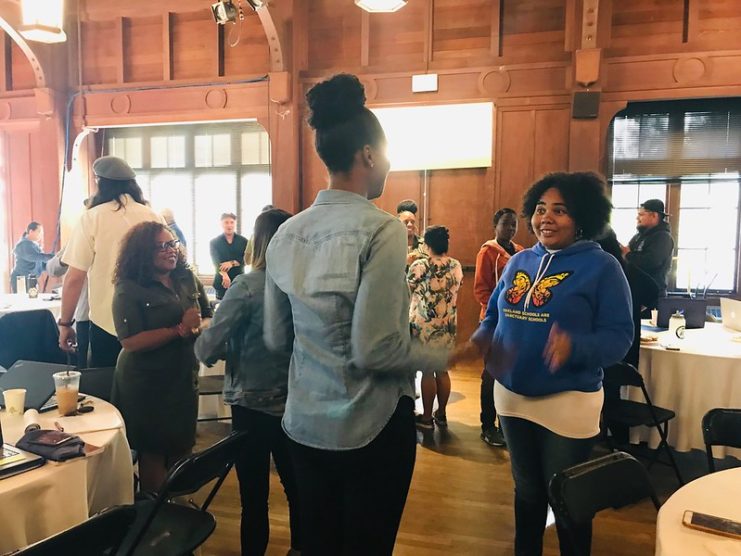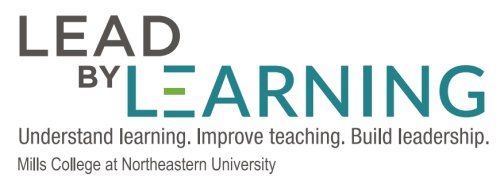
Expanded Learning
On a clear October morning, 100 Oakland Expanded Learning site coordinators and agency directors gathered on the Mills College campus to collectively explore the question “What do we mean by quality?” Under the leadership of Martha Pena, Chen Kong-Wick, Laila Jenkins-Perez, and Priscilla Parchia and in partnership with Mills Teacher Scholars, the OUSD Expanded Learning lead team is shifting from a compliance-driven approach to program improvement to an inquiry-driven approach. This year, they are inviting after-school leaders to join them in collaborative inquiry to define what quality looks like, drawing from practitioner expertise to build a shared framework to guide intentional, collective change.
“If getting to quality was simply about telling someone to do something, our educational systems would already be giving students and families what they need,” says Jennifer Ahn, Director of Network Partnerships. “The work is more complex than that and educators need opportunities to clarify their goals and reflect on what is happening in relation to their goals. If we want programs to be responsive and intentional, people need space to make sense of their work.”
A window into inquiry
The October workshop is kicked off by Tony Douangviseth, the Executive Director of Youth Together, who is the public learner. He sits at the front of the room, fishbowl style with his program manager, Priscilla, and a colleague from EBAYC, Frederick Mesa.
He first thinks aloud about how he is grappling with his staff’s differing notions of quality and then it is the listeners’ turn to support the thinking.
Frederick says, “When I listen to you talk about these differing opinions about quality, I keep thinking ‘What does the child need? We need to ask the youth: What is the quality now? What is the quality that we want?’”
Audience members nod their heads and murmur agreement as the fishbowl continues.
Priscilla follows with an appreciation of Tony, for sharing his uncertainty and for demonstrating a growth mindset.
In response to what he’s heard, Tony says, “I appreciate Freddie’s question. It returns me to what is important in this work and makes me wonder how I can put the youth back in front.
I’m thinking I should be asking more questions to the staff at the school sites like ‘What do the youth think?’ and ‘What are the youth saying?’”
Following this public learning demonstration, participants engaged in their own learning conversations with colleagues about the indicators of quality at their sites.
Leading by becoming a learner
Tony’s dilemma of practice surfaced a key value for the OUSD Expanded Learning group: quality programming is student-driven, and practitioners need to hear from students in order to respond to their needs. Instead of simply conveying these values, the OUSD Expanded Learning lead team created a shared learning experience, grounded in a concrete dilemma, that supported collective sense-making. Experiential opportunities like this one move people beyond compliance-mode to taking agency and ownership in improving their work.
When leaders go public with their learning, as Tony did, they authentically invite colleagues and staff to be thought partners. The Expanded Learning lead team is creating an inquiry space that supports public learning across their system. By doing so, they are transforming their adult learning culture to build collective awareness and support lasting change for their students.
